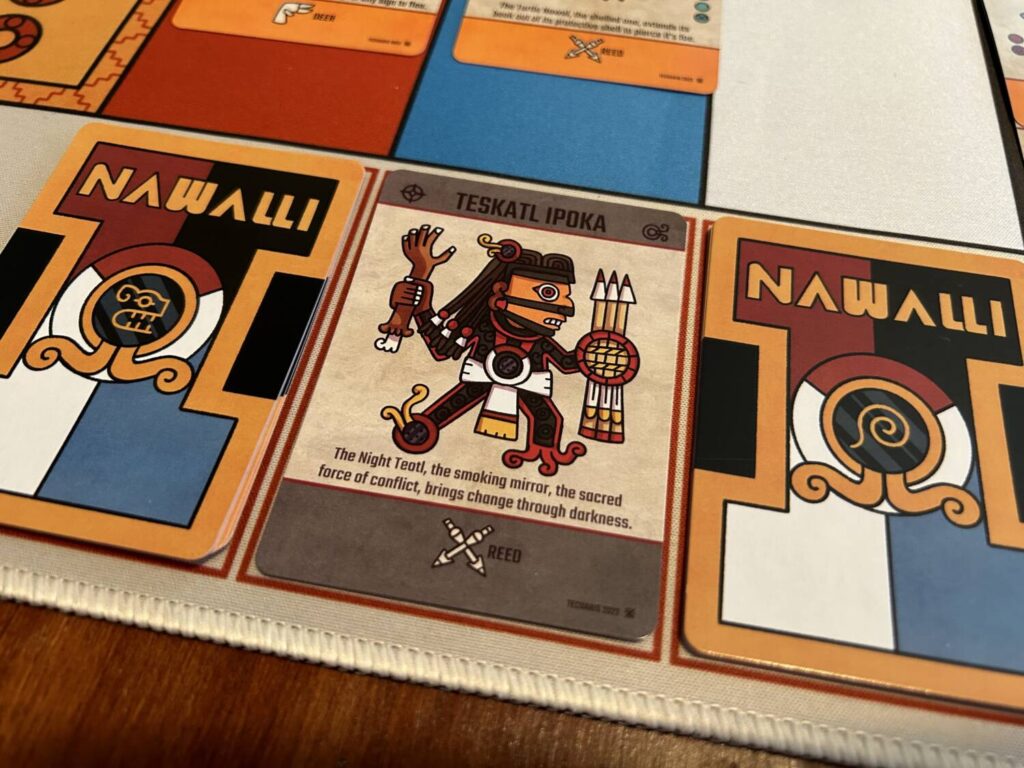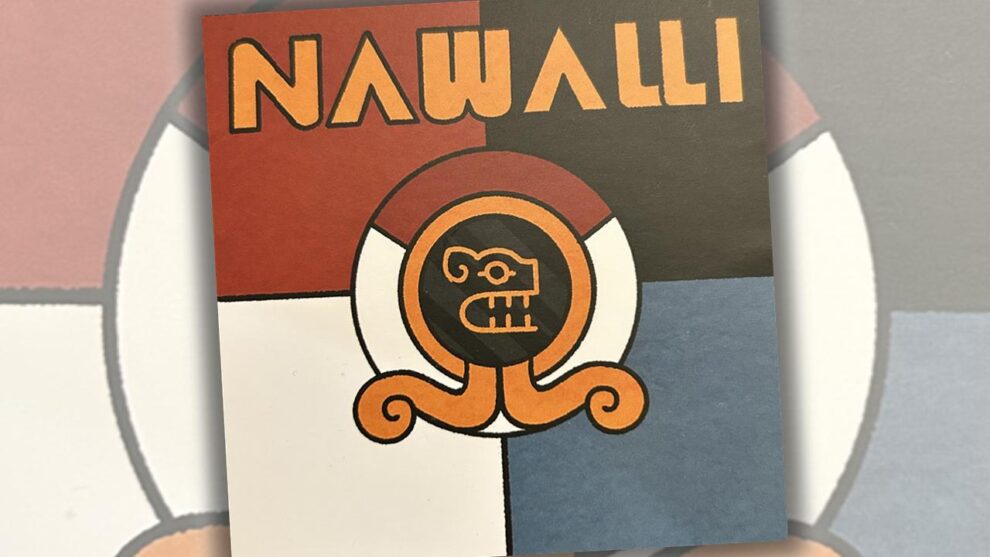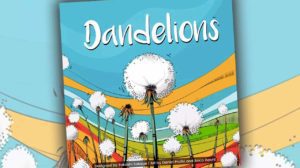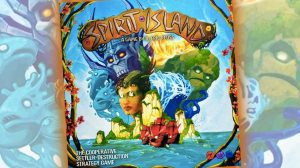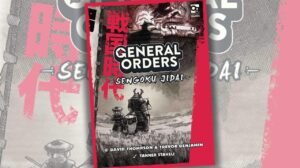Disclosure: Meeple Mountain received a free copy of this product in exchange for an honest, unbiased review. This review is not intended to be an endorsement.
I don’t imagine Edward Said spent much time at his friendly local game store. He would have had a field day. While his work becomes less and less relevant to The Hobby™ with every passing day—and thank goodness for that—he would still find plenty to grouse about. I imagine he would also, with games like NAWALLI, find something to celebrate. Co-designed by Will Rogers and first-generation Chicano Gonzalo Alvarez, who also illustrates, NAWALLI is, as far as I can tell, a sincere and non-exoticized engagement with Mesoamerican religions.
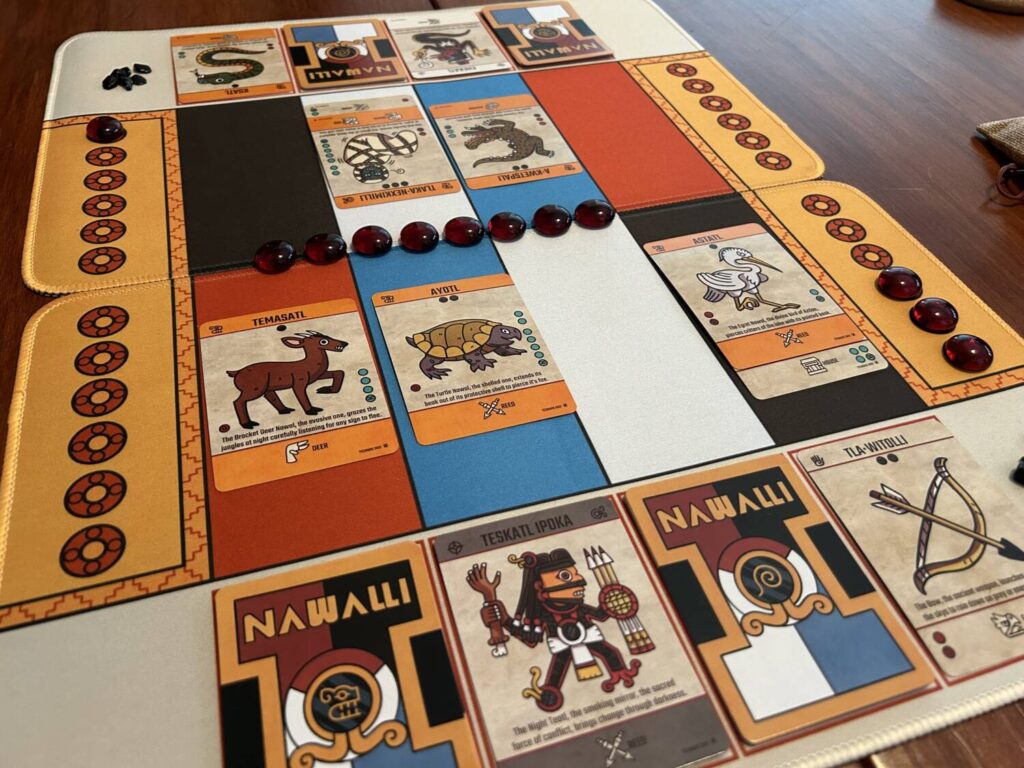
Contents
On top of that, NAWALLI is just so handsome. It comes in a compact cube, with simple but effective graphic design complimented by a color palette composed of beautiful, earthy tones. It looks sharp. The sides feature processions of creatures à la Aztec, charming in their aesthetic and variety. Bees! Dragons! Possums! NAWALLI immediately promises something different from the endless parade of military, fantasy, and nature themes.
Inside that handsome box is a lane battler, and a fine one at that. It seems that Nawals, humans with the ability to shapeshift into animal form, are territorial. You and your opponent duel it out for supremacy, a tug-of-war match realized by the creatures and items you summon into the four lanes that comprise the play area. Each player begins with six life, blood-red glass beads, and victory comes when one or the other holds them all.
Every Nawal in the deck has abilities, drawing from an available pool of 20. Where the game will fall apart for many, I suspect, is in the adjustment period surrounding these abilities. Each is indicated by a unique icon. That’s fine. I’ve played Race for the Galaxy, I know how to give good icons time to settle in. The problem is that the icons in NAWALLI are stylized rather than practical. After a few plays, you can read a new Race for the Galaxy icon as though it were a sentence, but you’ll never be able to do that here. These icons are aesthetic rather than practical. As a result, you spend much of your first several games staring down at the player aid, trying to figure out what, exactly, Grass does. That’s not a process everyone enjoys.
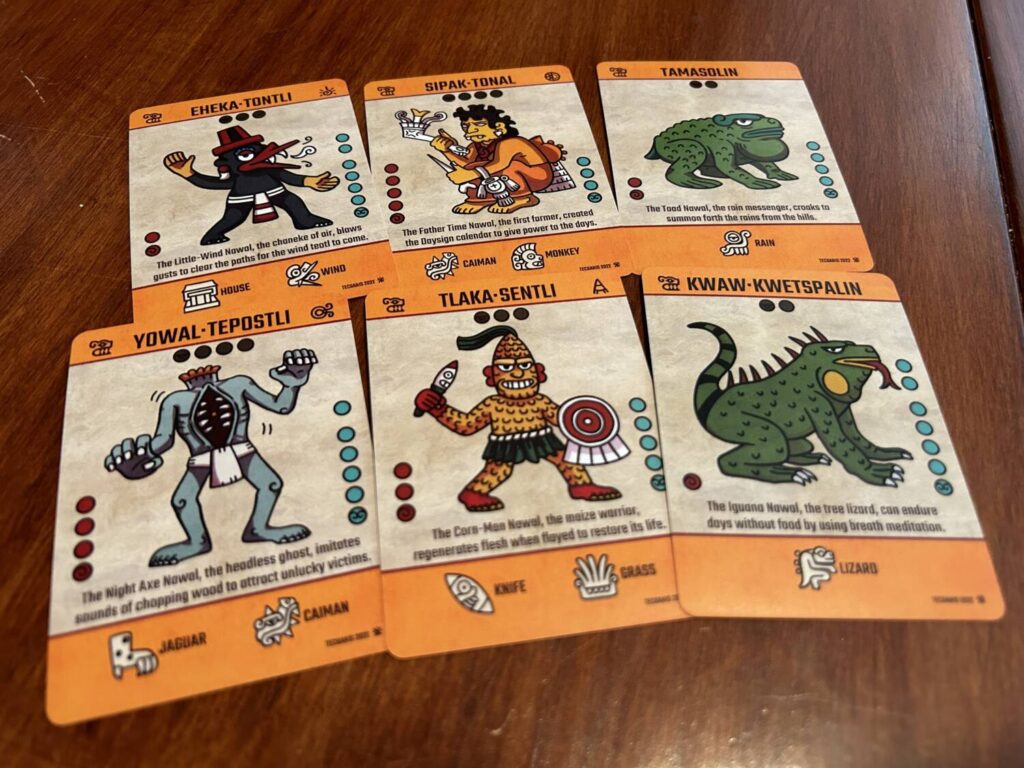
Once you learn those abilities, though, the game is a joy. The draft process that opens proceedings gives you an opportunity to pursue a wide variety of strategies. Characters combo in unexpected ways. Adding an item with just the right ability to one of your creatures can shift your weight from your back foot to your front.
A key compliment, one that I can’t always pay to modern designs: the various abilities are simple, leaving complexity to the results of their interactions and tactical use. That’s good game design, baby. Your card economy is limited, with 16 cards in total, which helps to keep games short. If your opponent is running ramrod over you, it’ll only take about 10 minutes. An entrenched game won’t stretch much past the 20 minute mark, brisk enough to keep it from getting tedious.
Presentation
For a publication of relatively limited means, NAWALLI takes full advantage of the tactility that defines board gaming at its best. The obsidian markers, representing the resources that pay for spells and Nawalli, are noticeably non-uniform. The bag that contains all the tokens is made from a rough, interwoven material. It all brings to mind archeological digs, arrowheads, and the process of crafting something by hand.
I also want to compliment NAWALLI’s player mats, though they do not come with the standard version of the game. There is increasingly too much neoprene in this hobby, and I don’t condone that, but boy, these player mats are good looking. They are certainly better than the included paper mats, which you’re better off replacing with four poker chips or whatever you have on hand.
Handsome, tense, unique in terms of its setting; there’s much to be said in favor of NAWALLI. It isn’t for everyone. It lacks the approachability and immediate punch of Battle Line/Schotten Totten, and it’s not as first-timer friendly as the similarly ability-charged Riftforce (a game nowhere near enough of you played, by the way). Still, NAWALLI is an excellent game. I look forward to seeing what Studio Tecuanis comes up with next. In the meantime, I’ll be happy to NAWALL over and over again.
